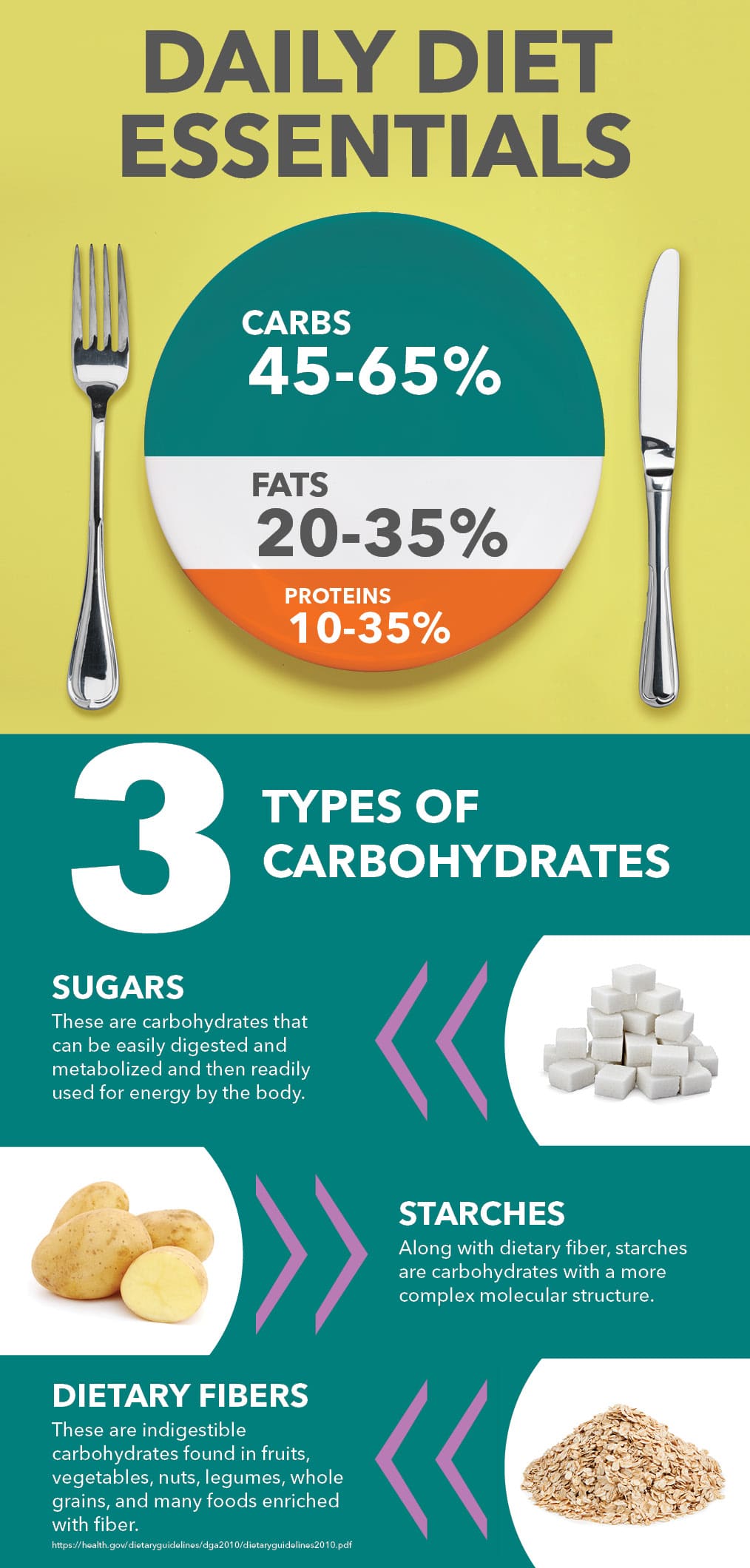Carbohydrates, like fats and proteins, are considered macronutrients. These “large scale” nutrients provide nourishment essential for growth and the maintenance of life. Ideally, 45 to 65 percent of your daily intake should come from carbohydrates, 20 to 35 percent of your daily intake should come from fats, and 10 to 35 percent of your daily intake should come from proteins.
The Three Types of Carbohydrates
Carbohydrates come in many different shapes and sizes and are classified as sugars, starches, or dietary fibers.
- Sugars are carbohydrates that can be easily digested and metabolized and then readily used for energy by the body. Some types of sugars include glucose, fructose, lactose, and sucrose. These sugars can be found in numerous foods but can also be used as ingredients for your favorite recipes. You may see the type of sugar labeled as table sugar (sucrose), fructose, lactose, brown sugar, molasses, honey, beet sugar, cane sugar, maple syrup, agave nectar, and many more.
- Starch and dietary fiber are carbohydrates with a more complex molecular structure. Starches are also digested and metabolized by the body but take longer than sugar to become available for use as energy. Most of our dietary intake of starches comes from our staple foods such as potatoes, wheat, corn, and rice. Flour and cornstarch are two common forms of starches we use in our cooking, and can be found in many recipes to provide texture and act as thickening agent in sauces, gravies and soups.
- Dietary fibers are indigestible carbohydrates found in fruits, vegetables, nuts, legumes, whole grains, and many foods enriched with fiber. Unlike sugars and starches, these carbohydrates are not digested. Dietary fiber has been shown to impart many benefits such as weight management, digestive health and regularity, and cholesterol reduction.
Carbohydrates Role in Fueling Your Body
Carbohydrates have been unfairly deemed the ultimate foe in your journey for weight management. While it is true that carbohydrates affect the release of the hormone insulin, this interaction is essential in regulating your body’s energy levels. Insulin allows for sugar to be removed from the blood and transported to the cells to be used as energy. However, without physical activity or exercise, glucose is stored as fat. Regardless of the type of energy, including carbohydrates, habitually overeating without physical activity leads to weight gain.
Healthy Weight = Eat Right + Get Moving
There are millions of adults deciding on the best way to manage their weight. Those who are most successful at weight loss and maintenance commit fully to a healthier lifestyle. To successfully achieve and sustain a healthy weight, it’s important to change your behavior to cut the calories and add the exercise. While fad or elimination diets tout their success, there is no one-size-fits-all diet. These diets are difficult to adhere to long-term and can derail your journey towards a healthier lifestyle. Rather than eliminating whole food groups, aim to achieve well-balanced meals with lean proteins, low-fat dairy, whole grains, and plenty of fruits and vegetables. You should also strive for at least 30 minutes of moderate-vigorous physical activity five days per week. There are plenty of ways to work this in. For some ideas, try our get moving calculator.

